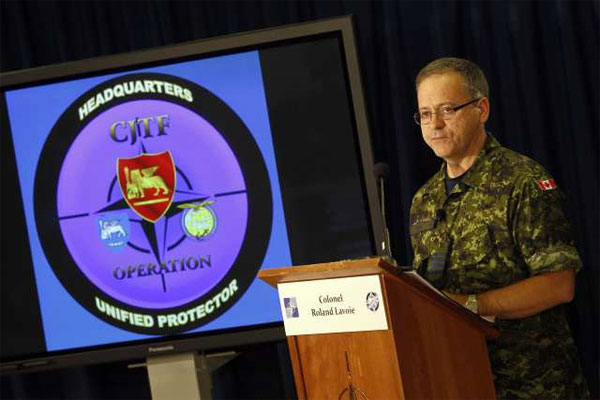
From Philippe Bolopion, the Los Angeles Times: NATO‘s military intervention in Libya was initiated under the principle of the "responsibility to protect," a concept born from the ashes of the Rwandan genocide: that the world should not stand by while mass atrocities go on within a sovereign state. . . .
After much lobbying, the principle was finally enshrined by the 2005 World Summit and successfully used to resolve dangerous crises in Kenya and Guinea. But never, until Libya, had its most controversial aspect — the use of force as a last resort — been put to the test.
In the eyes of many countries, NATO has failed that test. . . .
However unpopular Kadafi might be, the idea that NATO’s warplanes were trying to kill him has struck a nerve among countries allergic to regime change and already suspicious of the responsibility-to-protect concept, known in diplomatic circles as R2P.
"Libya has given R2P a bad name," India’s U.N. ambassador, Hardeep Singh Puri, said recently. Diplomats from South Africa, which unlike India supported U.N. Resolution 1973, have expressed similar concerns, saying they feel used and are indignant that the West ignored calls by the African Union for a cease-fire.
One could argue that when a leader is bent on committing mass atrocities against his population, the only effective way to protect civilians is to bring down the tyrant. Yet no NATO state has made this case openly; instead its members have gone to great lengths to assert their neutrality. . . .
Philippe Bolopion is U.N. director at Human Rights Watch. (photo: Franco Castano/AP)
Image: ap%208%2026%2011%20NATO%20briefing.jpg
